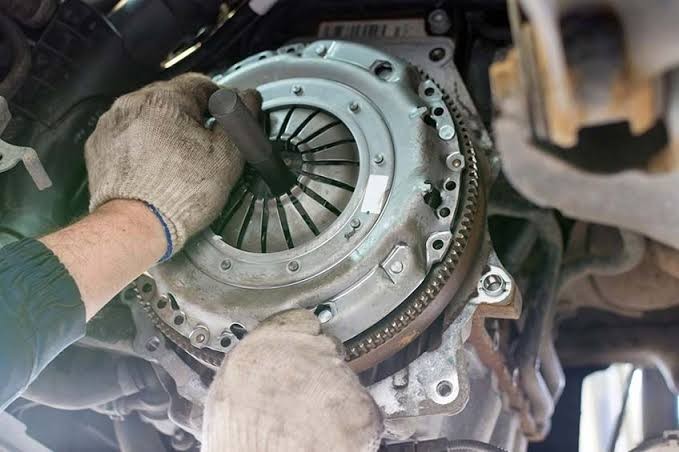Clutch slipping is a frustrating problem that can significantly impact the performance and driving experience of a manual transmission vehicle.
Clutch slipping is a common issue faced by drivers, particularly in manual transmission vehicles. It occurs when the clutch fails to engage or disengage properly, resulting in a loss of power transfer from the engine to the wheels. In this article, we will explore the symptoms, causes, and possible solutions to address clutch slipping.
Symptoms of Clutch Slipping:
1. RPM increase without proportional acceleration: One of the most noticeable signs of clutch slipping is when you rev the engine, but the vehicle fails to accelerate at the expected rate.
2. Difficulty shifting gears: If you experience resistance or grinding while shifting gears, especially when shifting into higher gears, it could be a symptom of clutch slipping.
3. Burnt smell: A burning odor, similar to that of burnt paper or friction, may indicate clutch slippage. This smell is a result of excessive heat generated by the slipping clutch components.
4. Decreased clutch pedal resistance: A spongy or loose clutch pedal that requires less force to depress can be an indication of clutch slippage.
Causes of Clutch Slipping:
1. Worn clutch disc: Over time, the clutch disc can wear down, causing it to lose its friction material. This wear reduces the ability of the clutch to grip the flywheel, resulting in slipping.
2. Faulty pressure plate: A worn-out or damaged pressure plate can fail to exert sufficient pressure on the clutch disc, leading to slipping.
3. Contaminated clutch plate: The clutch plate can become contaminated with oil, grease, or other substances, reducing its friction and causing slippage.
4. Weak clutch springs: The springs within the clutch assembly can weaken over time, resulting in reduced clamping force and clutch slipping.
How to Fix Clutch Slipping:
1. Check clutch fluid: Ensure that the clutch fluid reservoir is filled to the recommended level. If low, it may cause improper engagement. If the fluid is discolored or contaminated, it should be flushed and replaced.
2. Examine clutch cable or hydraulic system: Inspect the clutch cable or hydraulic system for any signs of damage, leaks, or misalignment. Repair or replace any faulty components accordingly.
3. Adjust clutch pedal and cable: If there is excessive free play or incorrect adjustment, the clutch may not engage properly. Consult your vehicle's manual for instructions on how to adjust the clutch pedal and cable.
4. Replace the clutch assembly: If the clutch disc, pressure plate, or other clutch components are excessively worn or damaged, it is recommended to replace the entire clutch assembly.
Frequently Asked Questions (FAQs):
Can clutch slipping occur in automatic transmission vehicles?
Clutch slipping is primarily associated with manual transmission vehicles. However, some automatic transmissions may exhibit similar symptoms due to a failing torque converter or other internal issues.
How long does it take to fix clutch slipping?
The time required to fix clutch slipping depends on the severity of the issue and the specific vehicle. It can range from a few hours for minor adjustments to a full day or more for a complete clutch replacement.
Can clutch slipping be prevented?
Regular maintenance, including checking and adjusting the clutch cable or hydraulic system, can help prevent clutch slipping. Avoiding aggressive driving techniques such as riding the clutch or excessive clutch slippage can also extend the clutch's lifespan.
How much does it cost to repair clutch slipping?
The cost of repairing clutch slipping varies depending on the make and model of the vehicle, the extent of the damage, and the labor rates in your area. Generally, the cost can range from a few hundred to a few thousand dollars for a complete clutch replacement.
By being aware of the symptoms and understanding the causes, you can take the necessary steps to address clutch slipping and prevent further damage. Regular maintenance and prompt attention to any signs of slipping can prolong the life of your clutch and save you from costly repairs.
Remember, if you are not confident in your abilities to diagnose or fix clutch slipping, it is always best to consult a professional car technician. They have the expertise and experience to accurately identify the issue and provide appropriate solutions.
In summary, if you notice symptoms such as RPM increase without acceleration, difficulty shifting gears, a burnt smell, or decreased clutch pedal resistance, it's essential to investigate and address the clutch slipping promptly. Whether it requires minor adjustments, fluid checks, or a complete clutch replacement, taking action will help you maintain the integrity of your vehicle's clutch system and ensure a smooth and enjoyable driving experience.

Comments (0)
Please login to join the discussion
Be the first to comment on this article!
Share your thoughts and start the discussion